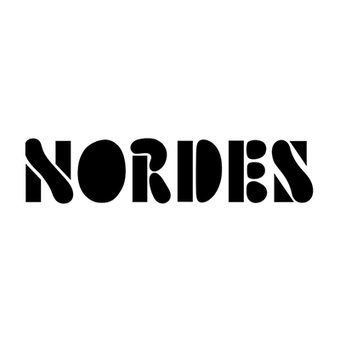Register
Event Details
This question is a provocation for design research. What do, or should, we care about in design and design research today? Underpinning the question are issues of culture and agency – who cares, for whom, and how? Taking care, or being cared for, evokes the choice of roles, and processes of interaction, co-creation and even decision-making. Caring, as a verb, emphasizes care as intention, action and labor in relation to others. Care can be understood as concern for that beyond oneself, for others and, thus, human, societal and even material and ecological relations are at stake. The question of care is also a call for questioning relationships, participation and responsibility, democratic and sustainable ways of co-existing. From this expansive societal standpoint, we could even ask who cares about design? And what should we do about it? The 8th biennial Nordes conference poses the question, “Who cares?”, exploring related questions, issues and propositions concerning responsibilities, relationships, ways of doing and directing design today.
The conference takes place at a time of great challenges and transitions in many of our societies. The consequences of climate change are becoming everyday reality for many, and sustainability is increasingly an issue for design institutions to frame and value in relation to other fundamental subjects. Diversity, equality and justice are matters of increasing public (as well as personal and community) attention and concern, and we continue to struggle with how to address this in societal and institutional structures, policies and daily interactions. European and Nordic countries are transforming in socio-economic terms as previous values, economies and systems of social welfare are being restructured and redistributed in various ways.
Nordic countries – and design – have long been on the forefront of addressing social, economic and environmental challenges, including design institutions, education and subjects. These can even be understood to underpin traditional concern and competencies in formgiving, making, materials and craft. More recent and explicit approaches have included human-centered paradigms such as participatory and co-design, inclusive and humanitarian design, and, increasingly, design for sustainability, transitions and social innovation, and design for services and policy. In order to address societal challenges practically, theoretically and ethically, design has engaged with areas of knowledge-making and theory-building from other disciplines, which can also be understood to challenge design more fundamentally. Ecological approaches, for example, may challenge design’s human-centeredness; and other scientific discourses can challenge preoccupation with the material and human-scale of design. At this time of socio-ecological challenges and transitions, it is a good moment for design research to engage with questions from the inside (from our practices, scholarship and institutions) and outside-in (through dialog, interaction and knowledge production with others, including other disciplines).
In the 2019 Nordes conference, we draw inspiration from notions of care as a lens through which to reflect upon and critique as well as potentially to refocus and redirect design and design research. Care might be understood in relation to philosophical lines of inquiry in other disciplines exploring theories, politics and ethics of care. Care might be understood concretely in relation to the ideals and infrastructures of welfare and healthcare systems, or service interactions. Care might be understood personally as a mindset seeking out what is meaningful for people, and for life, and with design as reflective and skilled action concerned with improving things and preferred situations.
The submission categories include (minor changes may appear before the deadline):
Full papers
Full formal academic papers (5000-6000 words including abstract and references, max 5 MB) must advance design research through clear analysis and finding thoroughly positioned within transdisciplinary design.
Exploratory papers (short)
Short research papers may (3000 words, including abstract and references, max 5 MB) and should refer to existing inquiry or work in progress. Short exploratory papers may be experimental in nature but must locate and connect to an identified body of research.
Workshops
The workshop sessions will be held on the first day of the conference. This format is included to allow participants to engage others in active participation on identified key issues that need to be discussed and debated. We welcome the inclusion of tools, methods and design events as ways of conducting these sessions. The workshop proposals will be evaluated based on the proposals’ creative and topical content, and they should preferably have a connection to a submitted conference paper. We welcome sessions that explicitly provide clear outlines of how that work will be translated into dynamic events and participation in this shared conference space. The submission (3000 words, including references, max 5 MB).
DC
The Doctoral Consortium will be held on the first day of the Conference. This is a space for presentation and exchange of work in progress, for the building of networks and for the development of future collaboration. Typically, this space also provides room for project-based inquiries to exchange experiences and needs. NORDES has always benefitted for PhD students’ contributions and we welcome active participation. We anticipate space for about 20 PhD participants. Required is the submission of a position paper that outlines the research and a specific interest or need to be addressed in the Consortium. The submissions are evaluated and selected by DC chairs.

When
Location
- Aalto University, Espoo, Finland

